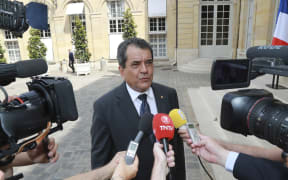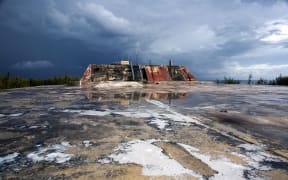French Polynesia's politics is contaminated by its nuclear legacy, with the president Edouard Fritch now admitting that he lied about the French weapons tests.
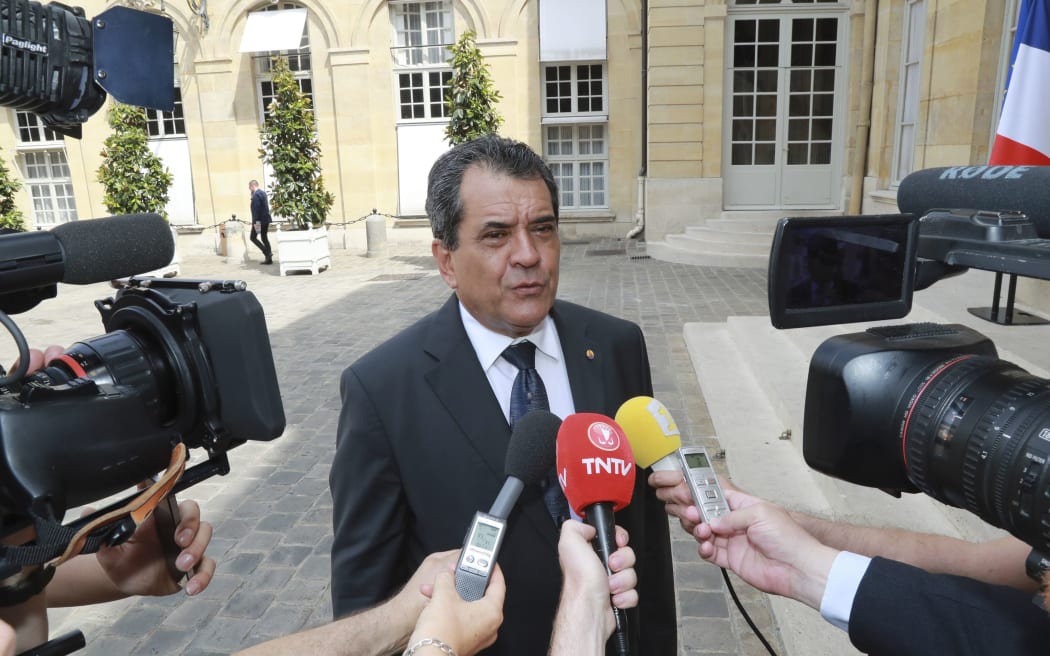
The President of French Polynesia Edouard Fritch speaks to journalists after a meeting with French Prime Minister at the Hotel Matignon in Paris on June 22, 2017. / AFP PHOTO / JACQUES DEMARTHON Photo: AFP or licensors
Trying to turn the page on the 30-year period of nuclear testing, a memorial is to be built in Papeete and the autonomy statute revised to recognise the territory's role in helping France develop its nuclear deterrent.
The debate last week about amending the statute, however, stunned the assembly when Mr Fritch spoke.
"For 30 years we lied to this people that these tests were clean. It was us who lied and I was a member of this gang! And for what reason did we lie? Because our own leader had seen a bomb explode," he said.
The pro-independence opposition politician Moetai Brotherson said this admission by Mr Fritch to blame his erstwhile leader and predecessor Gaston Flosse called into question the judgment of the current head of government.
"Pointing the finger at Mr Gaston Flosse, he has been lying because he was forced to lie by Mr Gaston Flosse which then brings another question.
"The question of his ability to live up to his ideas, his convictions. Because if he has been forced to lie by Mr Gaston Flosse for 30 years then that is a sad story for him as human being and as a political individual," he said.
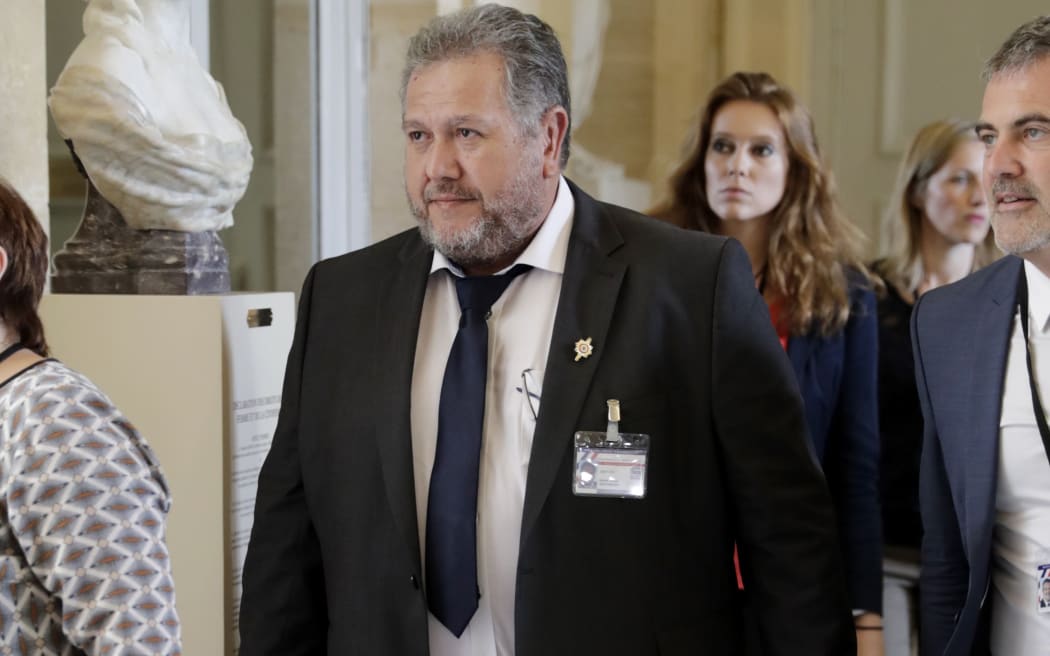
French National Assembly member, Moetai Brotherson Photo: AFP
Mr Fritch's admission has been met with scorn on social media as questions are now being raised about what other facts he might be misrepresenting.
Years after the US and Britain had conceded that their weapons tests had caused radiation-induced illnesses, the French stance was still that their tests were different and that they were clean.
Mr Brotherson said the general public might have believed the assurances given by the French authorities and by the pro-French local administration.
"At the time there was very little communication for the man in the street, very little knowledge of what had been done internationally, of the conclusion of the British and the US of the nuclear testing," he said.
Fifteen years ago - and at the height of his power - Gaston Flosse dismissed concerns by nuclear test site veterans about their illnesses by boasting about having had a swim at the test site.
But nine years ago in the face of a growing number of cancer cases and compensation claims, France changed its tune and the defence minister Herve Morin announced a compensation law.
"We will have a compensation scheme comparable to that of other great democracies which have carried out nuclear tests for their security, notably the scheme brought in by the United Kingdom," he announced.
To date, however, it has failed to live up to the victims' expectations.
With most applications being thrown out, resentment and frustration have built well beyond the anti-nuclear and pro-independence camp.
"Perhaps I did lie to my country, earlier perhaps, but now today! Believe me, believe me I feel obliged to repair what has been done in this country. Even it was the French state that did it. But I need the French state to repair what it has been done in this country," Mr Fritch said.
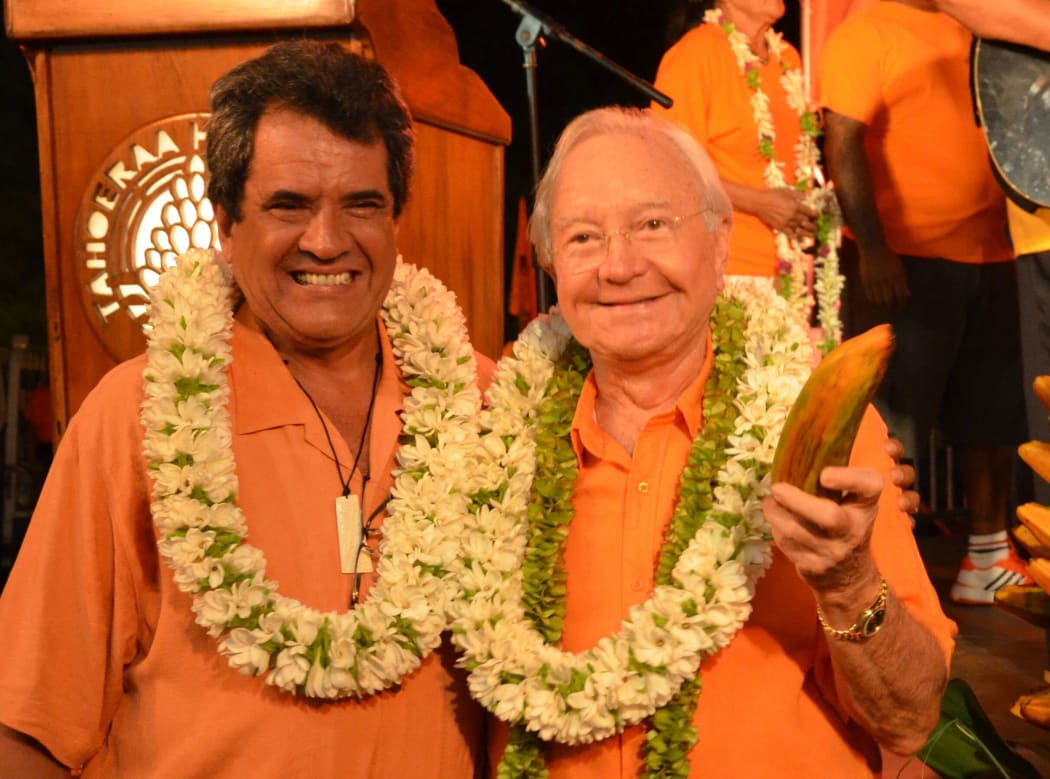
Eduoard Fritch and Gaston Flosse during the election campaign in 2013 Photo: RNZ Walter Zweifel
Despite his public mea culpa, Mr Fritch is holding back in his criticism of France.
This is in contrast to French Polynesia's dominant Maohi Protestant Church which has taken its accusation of alleged crimes against humanity to the United Nations Human Rights Council in Geneva.
The church claims that knowing of the impact of nuclear testing before 1963, France still proceeded with the tests in French Polynesia and detonated 193 bombs from 1966 to 1996.
Two years ago, the church announced at its synod that it planned to take France to the International Criminal Court over the testing legacy.
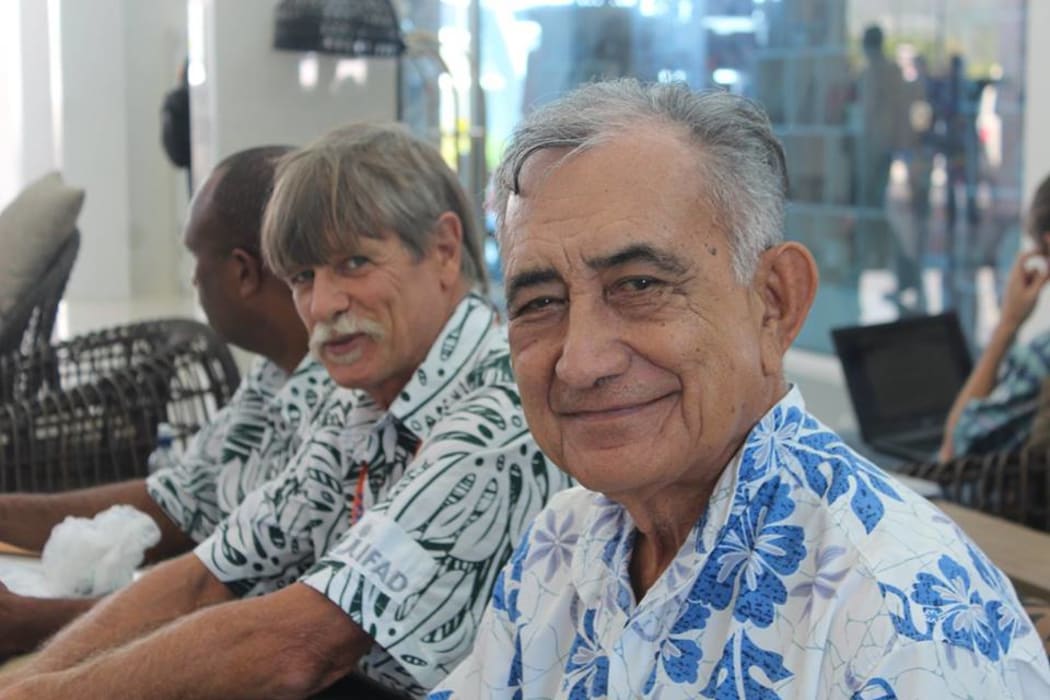
Oscar Temaru Photo: RNZI/Monica Miller
Last month, it was the pro-independence leader Oscar Temaru who announced at the United Nations decolonisation talks in New York that a complaint had been lodged with the ICC.
This drew the ire of Paris, which accused Mr Temaru of denigrating France and condemned what it called the misuse of the court's international jurisdiction for local political purposes.
Mr Temaru happened to lose his assembly seat over a campaign account irregularity days later which prompted Gaston Flosse to denounce his rival's elimination from the assembly as bizarre and a political move.
Mr Flosse, who for decades repeated the French assurances of the tests' safety, had turned on Paris when in 2014 he was forced from office over a long-running corruption case.
He was bitter that he wasn't pardoned, deploring the lack of recognition by France for having stood up for the nuclear weapons tests which he said allowed France to become one of the great powers.
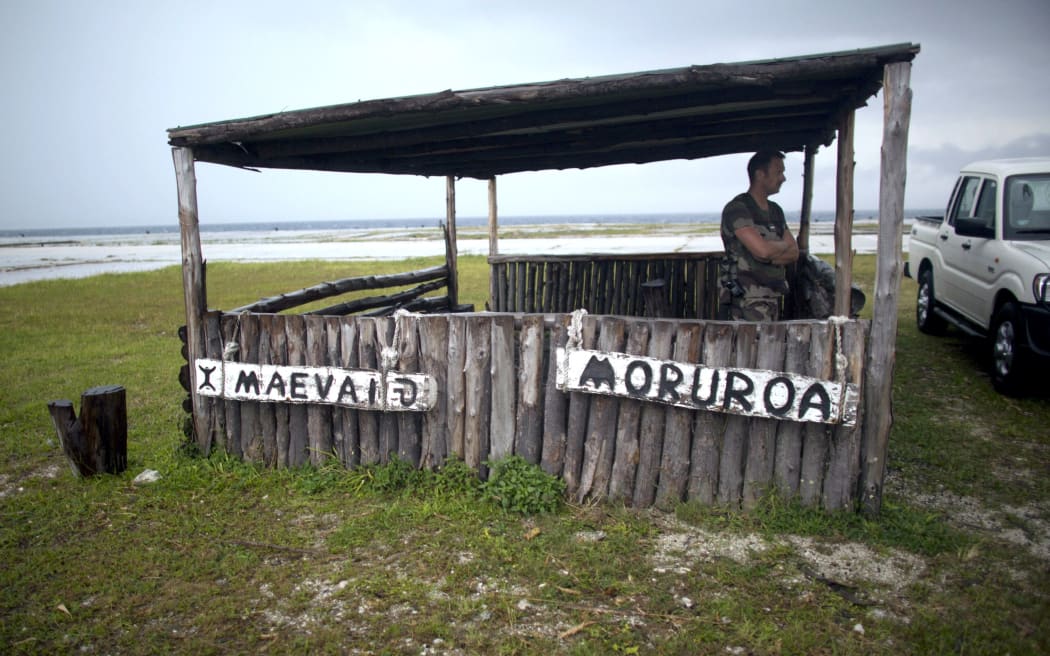
Moruroa Photo: AFP
Months later his Tahoeraa Huiraatira party engineered a resolution, seeking an additional $US132 million on behalf of the local government for the continued occupation of Fangataufa and Mururoa atolls, which France excised for its tests, but has refused to return.
Mr Fritch said at the time he was disappointed at his own party's move.
Mr Fritch also reacted with dismay earlier this year when the former head of child psychiatry in Tahiti reported that on Tureia atoll, a quarter of the children present during the 1971 blast now had thyroid cancer.
He accused him of causing panic but failed to engage as hoped a top Japanese geneticist to study the tests' aftermath in French Polynesia.
The nuclear legacy keep sitting like a cloud over French Polynesian politics.
Mr Fritch said he hoped to be able to work with France to settle the compensation while accusing the pro-independence side of using the nuclear question to keeping slapping France.
Last week, France said it would donate a site in Papeete to build a memorial to the test legacy.
Mr Fritch welcomed the offer but Mr Brotherson was more reserved.
"I'm pretty cautious of anything free coming from France - these are very often deadly gifts," he said.

